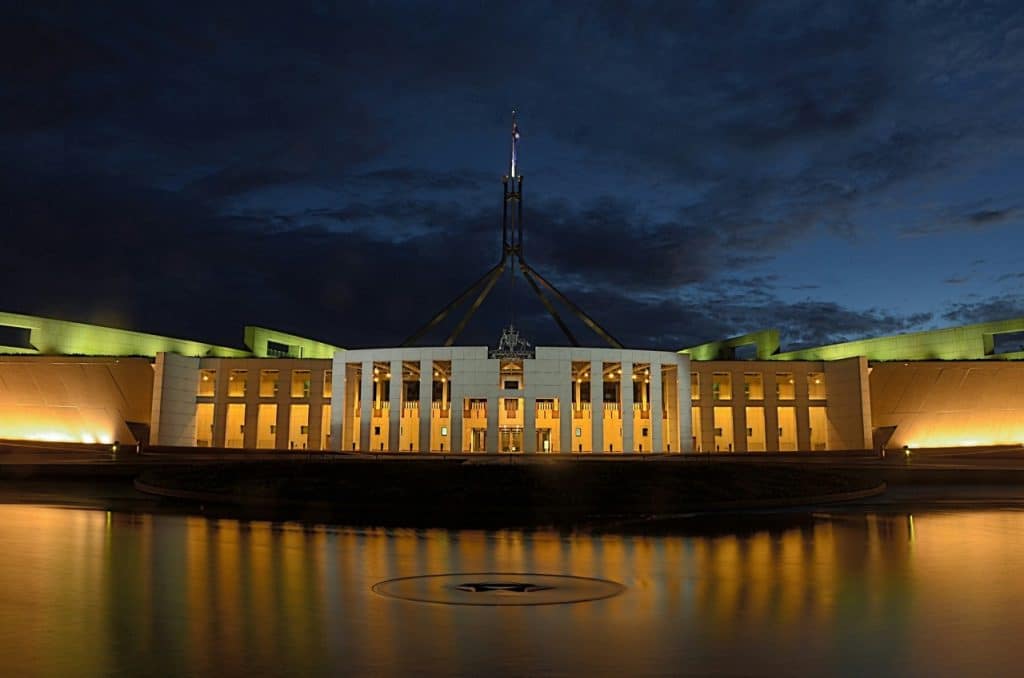New Bill risks undermining human rights for people seeking asylum
Under the government’s new Bill to strengthen community safety and prevent hate, discrimination and violence, Bill, visas could be cancelled… Read More

The Asylum Seekers Centre (ASC) submitted an inquiry to the proposed Deportation and Surveillance Bill to be abandoned, outlining several concerns and the detrimental impact to people we support.
The ASC established in 1993, provides practical support for people seeking asylum in Greater Sydney across healthcare, employment support, crisis casework, community connections, and more. We translate frontline experience to systemic change, platforming the voices of people seeking asylum to advocate for fairer, more humane policy.
The ASC welcomes the opportunity to submit to the inquiry into the Migration Amendment Bill 2024 (hereinafter referred to as “the Bill”) and to clearly outline that we oppose the Bill in its entirety.
The ASC notes with concern that this is the second submission of 2024 on attempts to amend the Migration Act 1958. It once again attempts to subvert the spirit of the law and the human rights of refugees and people seeking asylum.
Under international law, everyone has the right to seek safety from persecution. People who do so are some of the most vulnerable in our society, having been forced to leave their homes, families, communities, and cultures.
The ASC believes this Bill represents a real danger to people seeking asylum and risks retraumatising some of the most traumatised people in our community, exacerbating the existing mental health crisis among this cohort.
The process of introducing this legislation once again raises serious questions. The hasty and knee jerk nature of this Bill is out of step with due process and demonstrates prioritisation of political interests over evidence and human rights-based policy.
Response to the Migration Amendment Bill 2024:
Recommendation
The ASC believes this Bill is punitive in nature, denies human rights, and is a knee jerk response. We recommend the Bill be abandoned in its entirety. Our concerns centre around:
The attempt to once again force through parts of the previous Migration Amendment Bill 2024, which already met heavy resistance from legal experts, advocates, and the community earlier this year, continues a desperate trend of political expediency over evidence and human rights-based policymaking.
We once again call on the government to prioritise policy which recognises and reflects its legal and moral obligations.
We continue to stand alongside our peers in the humanitarian and human rights sector, as well as communities and citizens across Australia to aid, encourage, and demand better policy which respects the legal right to seek safety from persecution.
Measures contained in the Bill
This Bill is a failure of process, policy, and is morally compromised in its denial of human rights. It demonstrates a lack of accountability, fairness, and respect for the spirit of the law.
The Bill actively discriminates against people born elsewhere, giving the government wide-ranging powers to target those who have fled unimaginable danger.
It undermines the fundamental principle that everyone has the right to be protected under the law. Its impact will reverberate through the public debate far beyond the clauses contained within it.
Chain and constructive refoulement
The Bill presents serious concerns regarding human rights, family unity, and Australia’s international protection obligations. The Bill introduces measures that may result in disproportionate punishment and expose vulnerable individuals to significant risks. The following measures constitute a breach of refugee law.
In seeking to be able to send people to a third country, the Australian government is casting off its responsibilities to uphold human rights, putting people at risk of being re-detained or deported to the country they fled, where they risk serious harm. Known as ‘chain refoulement’, this measure effectively outsources human rights abuses.
If people seeking asylum refuse to go to other countries, the Minister can then re-detain them in Australia. This is a policy of intentional cruelty, offering many people a false choice between danger and detention. Known as ‘constructive refoulement’, this actively places people seeking asylum in an impossible position and will lead to unimaginable mental health impacts.
Expanded powers to overturn protection findings
The ASC is also deeply concerned by the expansion of ministerial powers to overturn protection findings, which will have devastating impacts on the mental health of refugees and people seeking asylum, causing people to live in fear and with permanent uncertainty.
Finally, the Bill seeks to remove accountability from the government, allowing it to act with impunity regardless of the consequences. In protecting the government from being sued for damages if they cause harm to someone who they deport to another country, it removes meaningful consequences for causing harm, enabling reckless government decision making and blocking any recourse for justice.
Impacts on people seeking asylum
Rather than support Australian communities and enhance social cohesion, the government is imposing unnecessary disruption to the lives of the most vulnerable.
People seeking asylum already have to navigate and survive a broken system that intentionally excludes them from both vital services and wider society. This Bill further alienates them, accelerating the narrative that people seeking safety are to blame for broader societal challenges.
By opening up the possibility of deportation or detention for those who have already been failed by unfair processes here in Australia, the government risks re-traumatising some of the most traumatised people in our community. This will inevitably lead to a sharp and irreversible spike in mental health issues among people seeking asylum.
A person supported by the ASC who arrived in Australia by sea as a child is a stark example of this broken process and the further devastating consequences if this Bill were to pass. Now an adult with a young family, they have lived in limbo for more than a decade, and continue to wait for a ministerial outcome on their claim for protection. The lack of certainty and support has already caused this person and their family severe mental health issues. Under the Bill, if their bridging visa expires, they could be detained and deported.
Another person supported by the ASC who arrived by sea as a child is now at Ministerial Intervention as they have no way to work, study, or support their family without a bridging visa. If the Bill were to be passed, this person would be exposed to detention or deportation, despite having arrived in Australia as a child.
This is part of a worrying trend set in train by successive governments. The ASC has seen a sharp increase of those presenting with mental health issues over the past years, with a 47 per cent increase in psychology support referrals from the same period last year. The uncertainty, alienation, and outright hostility generated by the Bill, among broader policy and rhetoric, creates and compounds the mental health crisis among this cohort.
Mental health issues often mean people seeking asylum struggle to secure and keep employment, support their families, and find suitable housing. Alongside broader economic conditions, it is one of the biggest challenges facing people seeking asylum in the community.
A person supported by the ASC who is currently on a bridging visa is unable to work due to severe mental health issues. This person reports that the unfair and protracted process they have been subject to has dramatically impacted their mental health, with an immense sense of helplessness. Having exhausted financial assistance from charities, this person is now at immediate risk of homelessness. This is a common scenario across the people we support.
This not only has an impact on individuals and families, but on the public purse. While combating this issue requires a broad legislative agenda, the first step should be to abandon this Bill.
Process of legislation and associated impacts
In the lead up to the 2022 federal election, the Albanese government pledged a ‘compassionate’ and ‘humane’ approach to refugees and people seeking asylum. By once again seeking to subvert the spirit of a High Court ruling and choosing to close off a perceived political threat rather than pursuing justice and fairness, it is clear this has now been completely discarded.
Having failed to pass previous legislation among a cacophony of opposition, the government is once again attempting to force through draconian new rules without due process, consultation with the broader community or people with lived experience, or adequate opportunity for detailed submissions and public debate.
A lack of engagement with affected communities perpetuates an already dangerous cycle. People seeking asylum are already isolated, vulnerable, and distrustful of systems. Pushing them further away from decisions that directly affect them and broader communities further entrenches this position, with significant impacts on both individuals and the cohesion of broader Australian society.
Under the government’s new Bill to strengthen community safety and prevent hate, discrimination and violence, Bill, visas could be cancelled… Read More
Written by Mark Johnson, Advocacy Lead at Asylum Seekers Centre Every year on 10 December, Human Rights Day gives us… Read More
"*" indicates required fields
